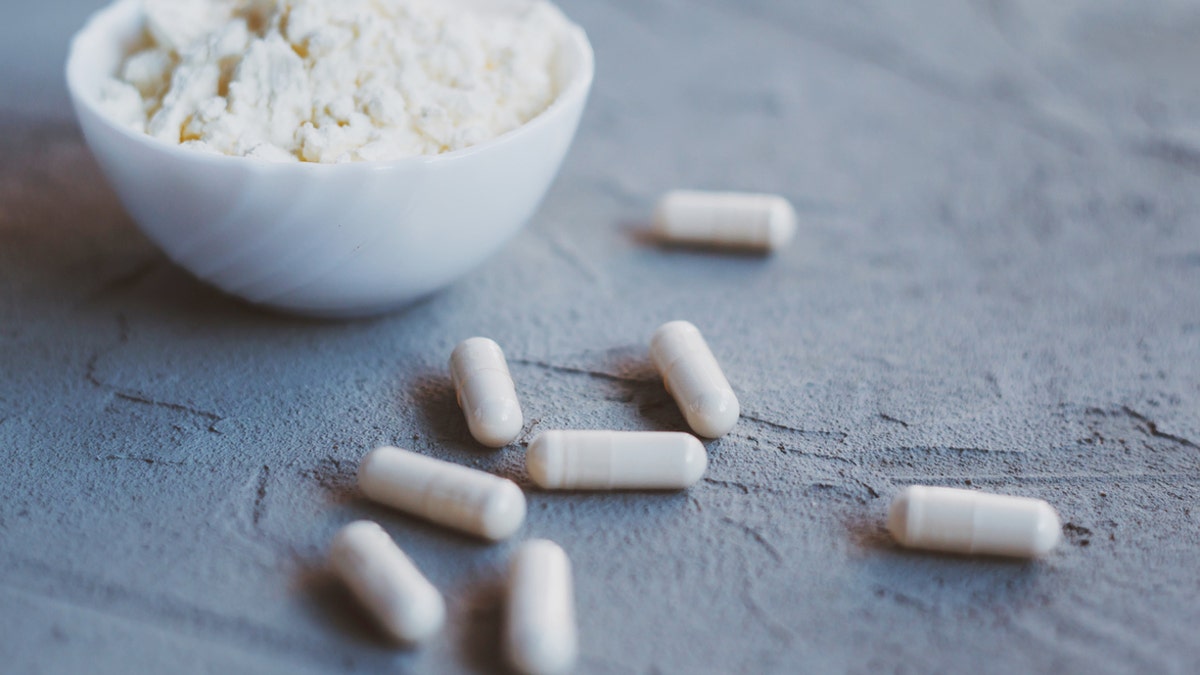Colostrum supplements are all the rage, but are the potential benefits worth the risks?
Colostrum might not be just for babies anymore. It’s also available in pill or powder form as a nutrient-boosting supplement that’s generating buzz on social media.
New mothers produce colostrum in liquid form after giving birth.
The fluid is packed with protein, nutrients and antioxidants to help boost babies’ immunity.
HERBAL SUPPLEMENTS AND THEIR SIDE EFFECTS: HERE’S HOW TO STAY SAFE
The supplement version — called bovine colostrum — is derived from the milk produced by cows in the initial days after giving birth.
Fox News Digital spoke with nutrition experts to find out whether colostrum supplements live up to the hype — and whether they pose any risks.
Potential benefits and limitations
Some studies have shown potential benefits of using bovine colostrum supplements, according to Erin Palinski-Wade, a New Jersey-based registered dietitian.
Those include preventing and shortening the duration of diarrhea, helping to prevent upper airway infections, and supporting a healthy immune system.

“These studies are small, however, and the evidence is not definitive,” Palinski-Wade told Fox News Digital.
“More research is needed to fully understand the health effects of bovine colostrum supplements.”
IMPROVING MEMORY MAY BE AS EASY AS POPPING A MULTIVITAMIN, STUDY FINDS: ‘PREVENTS VASCULAR DEMENTIA’
Sherry Coleman Collins, a food allergy dietician and expert in the Atlanta metropolitan area, agreed that the evidence for human supplementation with bovine colostrum is “extremely limited.”
Collins told Fox News Digital, “There is not enough evidence for me to recommend it for anyone for any reason.”

“We know that human colostrum is very beneficial for babies, providing specific nutritional value and immunological benefit through transferring some of mother’s immunity to baby,” she told Fox News Digital.
“However, we do not have enough evidence about bovine colostrum in humans to make any real statements about its impact on human health,” said Collins.
HOW ARE PRESCRIPTION DRUGS NAMED? A DRUG DEVELOPMENT EXPERT SHARES THE PROCESS
The dietitian also noted that the processing of milk impacts its nutrition and would likely reduce some immunity benefits.
Michelle Routhenstein, a New York City-based registered dietitian nutritionist who specializes in heart disease, said she does not recommend bovine colostrum supplements, “due to limited scientific evidence on their efficacy and potential variability in product quality.”
Risks involved with bovine colostrum
“These supplements are generally considered safe for healthy adults using them for a short duration, but there are still risks to consider,” said Palinski-Wade.
Individuals with dairy allergies or lactose intolerance should avoid bovine colostrum supplements, the dietitian said.
“Bovine colostrum contains estrogen, which may negatively impact individuals at risk for certain cancers, such as breast, ovarian or prostate cancer,” she said.

People with a history or risk of these cancers should speak to a doctor before taking these supplements, Palinski-Wade advised.
“These supplements also have not been tested on women who are pregnant or lactating and should be avoided in this population unless cleared by their physician,” she said.
Other potential risks include contamination by harmful bacteria, interactions with medications and unknown long-term effects, according to Routhenstein.
Safety tips
For those who decide to try the supplements, experts emphasized the importance of choosing a reputable seller.
“When purchasing bovine colostrum supplements, it’s important to choose reputable brands and sources to ensure quality and safety,” said Routhenstein.
“Bovine colostrum contains estrogen, which may negatively impact individuals at risk for certain cancers.”
“Look for supplements that are manufactured by reputable companies, adhere to good manufacturing practices (GMP), and undergo third-party testing for purity and potency.”
For optimal temperature regulation and storage of bovine colostrum supplements, Routhenstein said it’s best to consider purchasing from reputable third-party dispensaries specializing in health and wellness products.

“All supplements have limited oversight and don’t need to be proven safe or effective before being sold in the U.S.,” Collins said. “For this reason, there’s no guarantee on purity or potency in many cases.”
“Because bovine colostrum is likely to be sold as a dietary supplement, I would say buyer beware.”
For all supplements, Collins recommends looking for the USP (United States Pharmacopeia) symbol, which indicates that the product “does not contain harmful levels of specified contaminants” and that it is “made using safe, sanitary and well-controlled manufacturing practices according to FDA and USP guidelines.”
ASK A HEALTH EXPERT: ‘SHOULD I TAKE PAXLOVID IF I HAVE COVID?’
Certain groups of people should be careful to avoid colostrum supplements, the dietitian said.
“I always caution people with compromised liver, kidney or immune systems about taking dietary supplements,” she said.

Bovine colostrum supplements may not be suitable for individuals with dairy allergies, women who are pregnant or breastfeeding, and those taking immunosuppressant medications, according to Routhenstein.
For anyone else interested in trying colostrum supplements, both dietitians advised consulting with a doctor before trying them.
CLICK HERE TO SIGN UP FOR OUR HEALTH NEWSLETTER
“I think this is just a case of too much speculation with too little actual research at this time,” Collins said.
“Could bovine colostrum benefit some people? Maybe. But there are a lot of other proven ways to improve health that don’t involve supplements or speculation — like eating enough fruits and vegetables — and I would encourage people to spend their hard-earned dollars there first.”

The FDA does not test or approve dietary supplements before they are sold, according to the agency’s website.
“Consumers may contact the dietary supplement manufacturer or a commercial laboratory for an analysis of a product’s content,” the agency stated.
The FDA recommends that consumers talk to their doctor, pharmacist or another health care professional before choosing to take any supplement, and warned that some supplements may interact with other medications.
Fox News Digital contacted the FDA requesting additional comment.
For more Health articles, visit www.foxnews.com/health.
Read the full article Here


